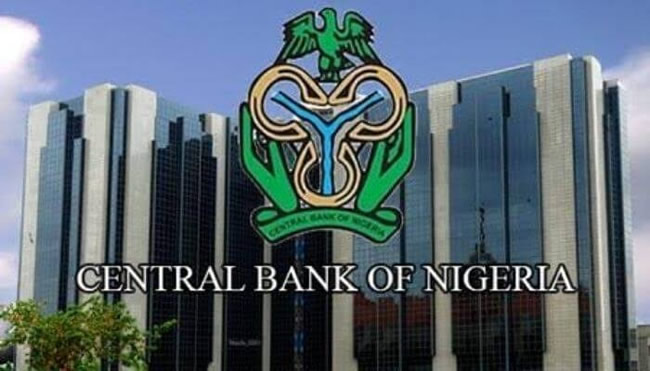
Real estate and construction firms in the country were able to secure loans totaling N21.89tn in four years, findings by The PUNCH have shown.
The sector also contributed N93.14tn to Nigeria’s Gross Domestic Product during the period, according to an analysis of the GDP report released by the National Bureau of Statistics between 2019 and 2022.
According to the Sectoral Analysis of Deposit Money Banks’ Credit by the Central Bank of Nigeria, the real estate sector secured a loan of N8.22tn, while the construction industry obtained even more impressive credit facilities worth N13.77tn.
Recall that, the apex bank increased the benchmark interest rate from 11.5 per cent earlier last year to 18.5 per cent in May this year, across seven consecutive rate hikes as part of strategies to reduce inflation and mopped up liquidity from circulation.
Between May 2022 and May this year, Nigeria’s interest rate rose by about eight per cent.
However, data from the CBN revealed that borrowing by real estate firms rose from N15.16tn to N21.89tn, representing an increase of 44.4 per cent between January 2019 and December 2022.
Further analysis showed that the firms borrowed the sum of N18.26tn in 2020 and N20.861 in 2021
Reacting, the Executive Secretary of the Association of Housing Corporation of Nigeria, Toye Eniola, said higher interest rates on loans would hamper housing development.
He said, “This will obviously increase interest rates on loans, which will make it unattractive for housing development. Development loans require patient funds and if you are getting such loans at above 20 per cent, how would such a development be lucrative? It will be suicidal to go for such a thing, as houses developed are not going to be sold in one day.
“Before now, the interest rate on commercial bank loans was between 25 per cent and 30 per cent, and with the increase in Monetary Policy Rate, the interest rate will definitely go above 30 per cent. And this will obviously reflect an increase in the high cost of building materials and apparently lead to many abandoned projects. It is not looking good for the housing sector.”
Also, the International Monetary Fund in a report stated that tightening financial conditions, such as interest rate hikes, had affected commercial property prices by making it more expensive for investors to finance new deals or refinance existing loans.
The report, titled ‘Commercial Real Estate Sector Faces Risks as Financial Conditions Tighten’, said that trend was lowering investment in the sector.
It added that the stringent financial conditions would also have an indirect impact on the sector by slowing economic activity and reducing demand for commercial property such as shops, restaurants, and industrial buildings.
The IMF said financial conditions were important drivers of commercial real estate prices.
Meanwhile, infrastructural activities in the housing and construction sector grew from N18.13tn in 2019 to N28.94tn in 2022, representing an increase of 59.6 per cent.
The sector also raked in N20.32tn in 2020 and N25.84tn in 2021.
The NBS calculates the sector’s contribution by adding up gross outputs such as a sum of fees, the value of work done, commissions receivable for the services rendered and other incomes.
It also considers intermediate consumption, such as details of the cost structure, including transportation fees, operational expenditures, minor repairs and maintenance, etc.
Further analysis revealed that the annual growth rate of the real estate sector was 10.75 per cent in 2022, higher than the -3.45 per cent reported in 2019.
The report read, “The annual growth rate of the sector was 10.75 per cent in 2022. The total contribution of the sector in real terms in 2022 stood at 5.64 per cent, higher than the 5.60 reported in 2021. Overall, a growth of 3.95 per cent was recorded in 2022.
“In contrast, real GDP growth in Q4 2019 stood at -3.45 per cent, higher than the growth recorded in Q4 2018 by 0.40 per cent points, but lower by –1.13 per cent points relative to Q3 2019. Quarter-on-quarter, the sector grew by 5.67 per cent in the fourth quarter of 2019. It contributed 6.21 per cent to real GDP in Q4 2019.”
The report stated that contributions from construction services were 12.72 per cent in 2022, higher than the 3.72 per cent reported in 2019.
The NBS stated, “Overall, the sector grew by 12.72 per cent in 2022. Construction contributed 10.16 per cent to nominal GDP in the fourth quarter of 2022, higher than the 9.99 per cent it contributed a year earlier and higher than the 9.50 per cent contributed to the third quarter of 2022. The total contribution of the sector in nominal terms in 2022 stood at 9.38 per cent.
“In 2019, construction contributed 3.72 per cent to real GDP. The sector accounted for 3.44 per cent of real GDP in the fourth quarter of 2019, lower than its contribution of 3.48 per cent in the same quarter of the previous year, but higher than the preceding quarter’s 3.01 per cent.”
Reacting, the Chairman of the Real Estate Developer Association of Nigeria, Aliyu Wamakko, stated that the contributed amount revealed what the private sector could achieve if given the necessary support.
He said, “When you talk about real estate, it is driven by private investors. This means for any economy to strive the private sector must be given a platform and a level playing ground for them to perform.
“For example, creating jobs in real estate does not require an incubation period. Anytime you start building a house, at least 25 people will get a job. So, if the government wants to support the economy of the country, more opportunities should be given to the private sector.”





